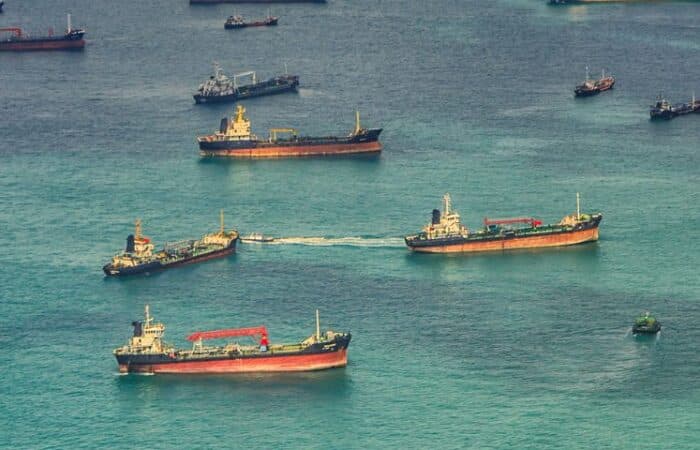Energy Risk Management
What is energy risk management?
Energy risk management minimizes the risks involved in the movement or shipment of energy commodities. Managing risks associated with the energy industry is becoming increasingly complex, due to various factors, such as sanctions, evolving deceptive shipping practices, and world events. Energy risk management means determining, assessing, and prioritizing risks associated with uncertainty in the energy markets. Controlling energy risks can provide greater market assurance for companies, such as oil and gas producers, traders, etc. Risk management is vital for protecting business reputations and enabling safe trade.
Stay ahead of deceptive shipping practices
In May 2020, the U.S. Department of Treasury’s Office of Foreign Assets Control (OFAC) advisory redefined shipowners, traders, and energy companies’ liability, increasing their
obligations and requirements beyond list matching, making vessel behavioral analysis and proactive compliance risk management more critical than ever.
Russia’s invasion of Ukraine has clearly had a huge impact on the maritime ecosystem (and the world). Russia possesses the fourth largest coastline in the world and has access to 12 seas and three oceans, with large amounts of commodities moving through the area, including oil. Long-term strategic planning, however, requires thinking beyond this conflict.
Deceptive shipping practices are constantly evolving and it’s crucial to identify emerging threats. Many bad actors are still “going dark” (disabling the AIS system), but sophisticated bad actors now understand that a vessel worth millions of dollars is too expensive to risk going dark for a single transaction. If identified, the vessel, crew, and owners will not only be exposed to sanctions, but also suffer from seized cargo and lasting reputational damage.
New tactics have emerged under an umbrella term called “spoofing.” Within this concept, multiple tactics are used, including
- Global navigation satellite system (GNSS) manipulation, also known as location tampering, is the use of a machine-generated location or path to disguise the true location of the vessel. Multiple methods have been identified to carry out this deception, including false transmission onboard the vessel and third-party onshore accomplices.
- Flag hopping is defined by OFAC as “repeatedly registering with new flag states to avoid detection.” But registration changes are also commonly used as a legitimate financial tactic, making it difficult to label it as an illicit activity. This makes malicious flag hopping well-concealed in a sea of legitimate flag hopping.
- According to C4ADS, identity tampering is the deliberate falsification of a vessel’s broadcasted data on AIS, or alterations to its physical features to misrepresent its identity.
Bad actors won’t stop trying to develop new deceptive shipping practices as the potential rewards of illicit activities, like crude oil smuggling, are exceptionally high. In the energy trading and risk management market, it’s critical to identify these behavioral patterns to confidently and safely do more business.
Who are you doing business with?
Knowing who you’re doing business with is crucial in the energy trading and risk management industry. Engaging with a potential high-risk vessel or company can have major ramifications, both financially and for your business reputation.
Monitoring containers and wet cargo is also important – they can be monitored by looking at vessel behavior, events, and insights. Tracking what’s on board and verifying Bills of Lading and their vessels, ports, and voyage connections ensure you know who you’re doing business with to minimize possible risks.

Counterparty due diligence
With the right technology, you can screen any person or company in the world for sanctions lists, global watchlists, adverse media and politically-exposed persons (PEPs), manage cases to complete ongoing investigations and future audit reports, and customize watchlists to monitor any compliance risk change.
Prevent disasters
Energy risk management is also crucial for preventing environmental disasters, such as oil spills that can cause major ecological damage. The responsibility to monitor and prevent these environmental disasters lies in the hands of all parties involved in the maritime domain and supply chain. These environmental crises could be avoided with Maritime AI™ technology that can identify risky behavior and potential deceptive shipping practices, and perform counterparty due diligence, greatly enhancing maritime domain awareness and risk analysis.
Benefits of Maritime AI™ insights for the energy and oil sector
- Save time on manual processes, like data gathering and analysis.
- Global organizational risk policy can be customizable
- Get immediate go/no-go recommendations
- Receive a clear explanation of the behavioral analysis
- Ensure you get a 360° view of risk and a full audit trail
- Protect your organization’s reputation







